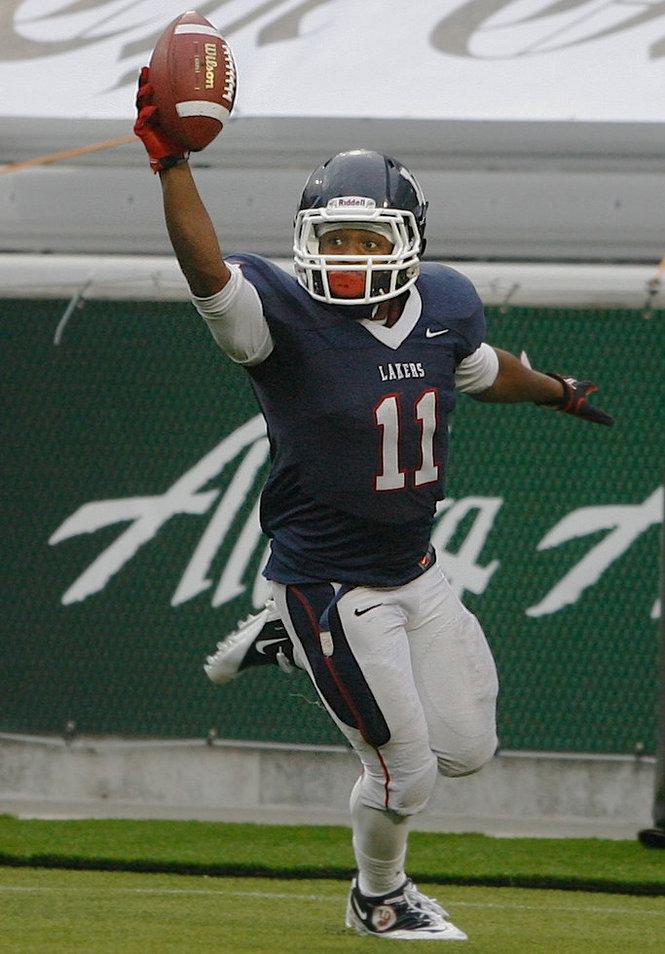 The question of whether leaders are born or made is pointless to sports fans.
The question of whether leaders are born or made is pointless to sports fans.
They focus their narrow vision where it belongs, namely whether athletes are born or made.
One train of thought suggests that everyone is an athlete, though not all find their best sport in the beginning. If that sounds right, there’s more to it.
It’s called coaching.
An athlete may play their best sport, but won’t mature into it overnight and grow discouraged. The patient coach understands this.
In terms of Oregon 6-A high school football, many have found their sport if you judge by the past five championship games. With one exception, the top big-school football in the state is centered on one area.
Draw a line from Jesuit to Lake Oswego to Tualatin to Aloha, then back to Jesuit, and you’ve surrounded Southridge. Add Sheldon from Eugene and it’s a list of the six teams filling the championship game slots. Instead of ten different teams, the same six have played for the grand prize.
A closer look at the record book shows why.
For the most part, the last two teams standing at the end of the year have stability. They either have the same head coach year after year, or a coaches with the same last names, like Tualatin and Sheldon.
Jesuit’s Ken Potter showed up in his first championship game after the 2000 season and won. He joined the party four more times, going back to back in ’05 and ’06.
Coach Marty Johnson brought the Sheldon Irish to the final game in 2001 before winning it the next year. Sheldon came in three more times with a Johnson at the reins.
The Lake Oswego Lakers have been to the big dance four times under coach Steve Coury, a bridesmaid three times until beating Sheldon this year.
The Hastin family of Tualatin guided the Timberwolves to the top twice before falling short at the end, once to Sheldon and last year to the Aloha Warriors coached by Chris Casey. If the Hastins keep pushing like Steve Coury in Lake Oswego, the T-Wolves will get their title.
Brad Mastrud gave Southridge a taste of greatness before losing the 2006 finals to Jesuit. He filled the Skyhawk basket all the way up two years later with a win over Lake O.
That Portland area teams, along with Sheldon, have dominated the big-school football finals is no fluke, any more than it was with Roseburg’s decades of winning under coach Thurman Bell, Medford’s run with coach Fred Spiegelberg, or the Marshfield Pirates going back to back to back with coach Pete Susick in the mid-50’s.
The culture of hard work and winning begins early; the habit of effort lasts a lifetime. Where does it start? Early.
For most, youth football is a sport of dreams, one step away from a Halloween football player costume. It may last a season, or all the way through senior year. When the dream of playing high school varsity football is realized by kids playing together since the third grade, expect something great.
The coaches who win state titles get their names in the record book. Coaches who take teams from the beginning are lost in sports memories.
Youth sports attract two kinds of coaches. One coaches the game first, the other coaches his kid first. The game coach knows what to expect from the first whistle. He’s played when the stakes are high and knows how to carry a team. You hope your kid plays for him.
The game coach reads his players correctly. He knows who will continue, who should and who shouldn’t. He talks to parents in a way they understand. He channels sports.
Instead of excuses, the game coach explains how the ball bounces different for everyone, how the best intentions aren’t always enough for success. He knows enough about sports to suggest other areas of competition for kids who might excel later than sooner.
Few to none from his teams will point to him as the reason they weren’t as good as they could have been.
The key to game coach is patience. If his team wins a league title, he doesn’t put the plaque on the wall. If his players are still on the field in high school, he counts his time with them a plus.
If his players are still in any sport, he knows he guided them correctly.
It’s a rare high schooler who moves from sport to sport, from football to wrestling, from water polo to tennis. They bring the same feeling to choir that they brought to the grid iron. They know how to show up and compete.
The youth game coach knows everyone isn’t capable of reaching their potential in sports, but one sport can make the biggest difference, and he encourages his athletes to find it. He lives by the credo of ‘you may not remember every sport, and you may not remember every teammate, but you will remember how you felt when you played.’
And that’s enough.
Add The Sports Daily to your Google News Feed!